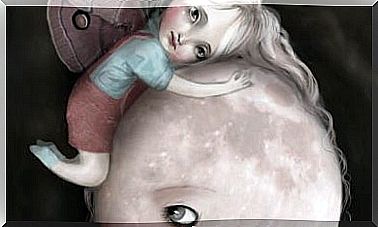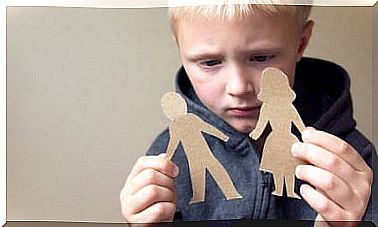Curiosity: Why Do We Love The Unknown?

The existence of curiosity is counterintuitive to evolutionary theory: the most curious among us should have been eliminated before they had a chance to reproduce, with the trait lost by natural selection. We don’t really need to do crosswords or find out exactly what is inside a dark cave. However, many and on many occasions we have the impulse to do so.
This strange motivation to explore our world beyond what we need to survive has landed us on the moon, expanded our domain of medicine, and even allowed us to better understand our genes.
At the same time, however, we do not fully understand the vehicle that has enabled us to make such breakthroughs. To this day, exactly where curiosity originates continues to confuse science. The big question remains. Does it come from within us or is it a response to our outside world?

Theories of curiosity: impulse and incongruity
A broad stream of psychology believes that curiosity is an internal drive that originates just like hunger or thirst.
Impulse theory helps explain search behavior. It shows us why we actively search and participate in crossword puzzles or play a musical instrument. These activities are not only inherently superfluous, they also contain the risk of failure. However, seen as food for our curiosity, they make much more sense.
The incongruity theory is based on the idea that our curiosity appears when we identify a difference between what is expected and what actually happens. We tend to see the universe as predictable and orderly. Under the incongruity theory, when this order is challenged, our curiosity is aroused.
Neither impulse theory nor incongruity theory can fully explain curiosity. Each has trouble fully explaining one aspect or another, which means remains a mystery to us.
Curiosity as a status or trait
The idea that curiosity originates within or outside of us has led to two distinct classifications of types of curiosity: state and trait. These two terms describe the way humans participate (or do not participate) in curious behaviors.
The fleeting excitement as a reaction is known as a state of curiosity. In general, it is based on an external situation and can be as mundane as wondering what a truck is doing making deliveries in a business close to 2:00 in the morning.
If all humans are naturally curious, then curiosity as a state seems to be the best descriptor of this aspect of ourselves. State curiosity tends to be related to high reward levels.
Curiosity as a trait is related to an interest in learning, the simple fact of learning acting as reinforcement. Throughout his study, trait curiosity has been linked to all kinds of behavior, from drug experimentation and arson to high intellect and fearlessness. However, overall it is a positive feature.
As a trait, those who transcend anxiety or fear that can inspire harm, pain or failure to go beyond what is known or mastered manifest an interest in solving questions.
In this sense, they transcend the possibility of not mastering the musical instrument they have decided to learn, the frustration of not finding the words to finish the crossword puzzle or being injured while diving.
The rewards
One of the underlying implications of curiosity is what follows from it. As children, we increase our understanding of the world by experimenting with it, we gain knowledge that will be very useful to us. But what is the reward for learning a lot about other planets if your day job is in accounting? What is the point of learning another language if there is no opportunity or concern to travel?
The answer is that our minds yearn for distraction. This idea is supported by studies of sensory deprivation conducted in the 1950s and 1960s. Research has shown that those with sensory deprivation, who are kept in rooms without light or sound for long periods of time, crave any kind of input.
Help for identity construction
We can also get other rewards for curiosity, as well as a means to avoid boredom. Cognitive psychologists propose that we form our identities in part through the information and attitudes we obtain from curiosity.
On the other hand, lack of curiosity has been linked to negative emotions. Studies have found that temporarily depressed participants show a lack of curiosity as a state. Similar data are found in studies that have been carried out using a sample of patients with Alzheimer’s.

Biology and curiosity
Psychology has inspired the search for biological factors. Thus, for example, the fact that curiosity was negatively associated with fear served as a guide for another scientific discipline, genetics.
In 2007, a team of researchers from the Max Planck Institute discovered what they called a “curiosity gene” in the great tit songbird.
This gene, the Drd4 gene, is responsible for creating receptors for the neurotransmitter dopamine. Birds showing common variation in the gene were more likely to visit new areas and explore unfamiliar objects placed in their cages.
In addition to the reward system, other areas of the brain also play an important role. It appears that the regions dedicated to working memory in the prefrontal cortex allow us to distinguish between new and previously experienced stimuli.
On the other hand, it seems that the physiological center that bears the greatest responsibility in our sense of curiosity is the dentate gyrus, a part of the hippocampus.
Other aspects remain a mystery. A mystery that arouses the curiosity of many researchers …









